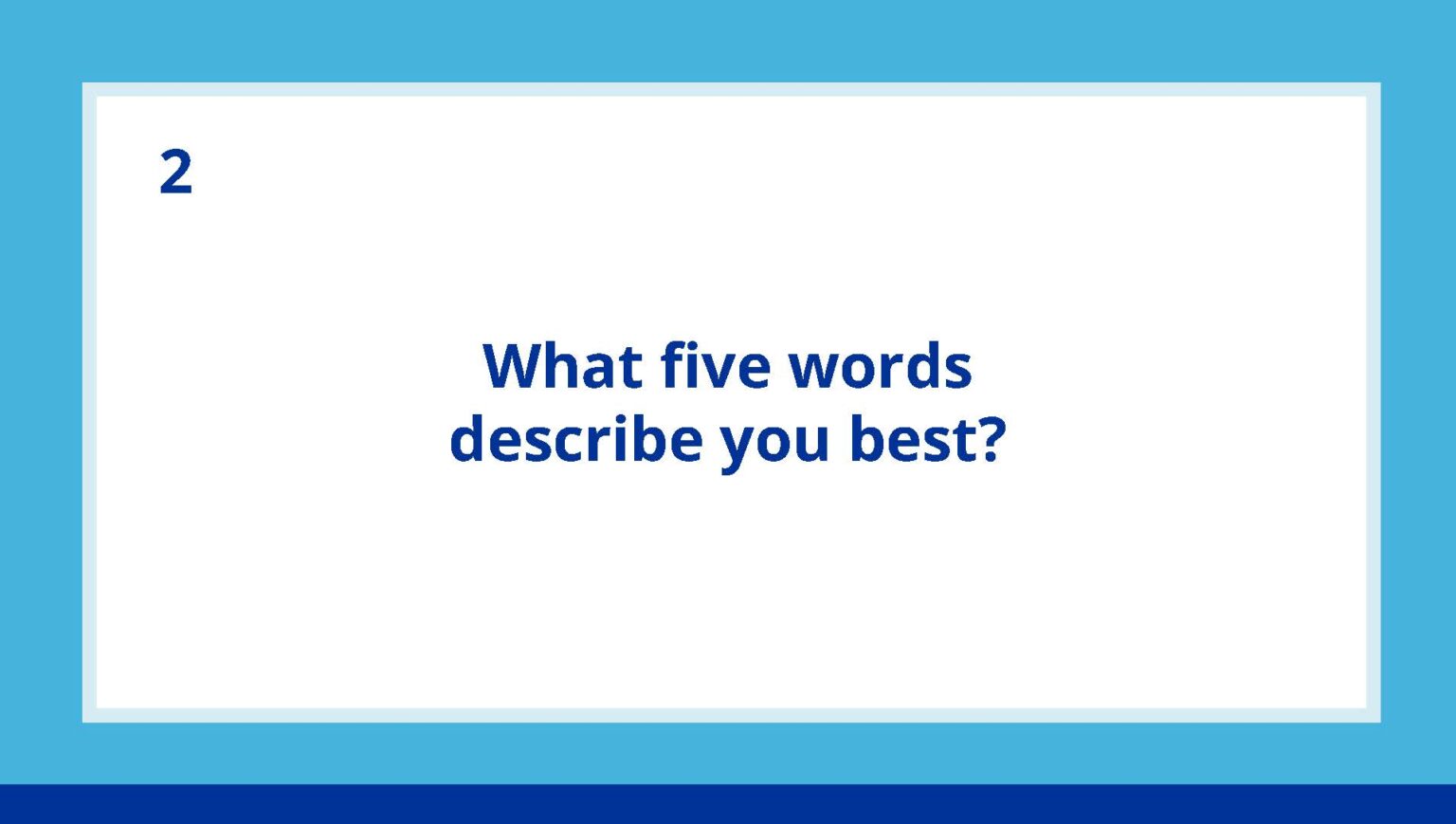Have you ever wondered what goes on inside the mind of a middle schooler? It’s a fascinating period of growth and change, filled with new discoveries and emerging identities. While their pre-teen years may seem full of awkward moments and teenage angst, middle schoolers are brimming with curiosity and a thirst for knowledge, just waiting to be tapped. Asking the right questions can be a powerful tool to unlock their thoughts, foster their development, and build meaningful connections.

Image: www.weareteachers.com
This article aims to equip you with a toolkit of engaging questions to spark conversations with middle schoolers, whether you’re a parent, teacher, mentor, or simply someone who wants to better understand this age group. We’ll explore a range of topics, from their interests and hopes to their challenges and anxieties. By asking thoughtful and open-ended questions, you can create a space for genuine communication and create lasting positive impact.
Beyond the Superficial: Delving into their Interests
Instead of asking “What’s your favorite subject?”, consider delving deeper into their passions and intellectual pursuits:
- What are you really passionate about right now? What makes it so interesting to you? This allows them to express their individuality and share their unique interests.
- If you could learn anything in the world, what would it be? Why? This question encourages them to explore their curiosity and dream big.
- What’s the coolest thing you’ve learned recently? How did you learn it? This sparks conversation about their learning process and their thirst for knowledge.
- What are you reading or watching these days? What do you like about it? This helps you understand their current obsessions and pop culture references.
- What’s something you’re really good at? How did you become so good at it? This allows them to celebrate their achievements and share their stories of perseverance.
Navigating the Labyrinth of Identity: Exploring Self-Concept
Middle school is a time of intense self-discovery, where teenagers are constantly trying to define who they are and where they fit in. Here are questions that encourage reflection and self-awareness:
- Who are some of the people who inspire you? How do they inspire you? This helps them identify role models and explore their values.
- What are some things you’re proud of about yourself? This builds confidence and encourages self-acceptance.
- What are your strengths and weaknesses? How can you use your strengths to overcome your weaknesses? This promotes self-reflection and personal growth.
- What are some things you’re afraid of? How do you deal with your fears? This helps them understand their anxieties and build coping mechanisms.
- What are your hopes and dreams for the future? What are you doing to achieve them? This encourages them to think about their goals and take steps towards achieving them.
The Rollercoaster of Emotions: Understanding their Feelings
Middle schoolers experience a wide range of emotions. Asking about their feelings can demonstrate your understanding and build trust:
- What are some ways that you like to relax and unwind? This helps them identify healthy coping mechanisms for stress.
- What’s something that makes you really happy? Why does it make you happy? This focuses on positive experiences and allows them to express gratitude.
- What’s something that’s been challenging for you lately? How are you dealing with it? This creates a safe space for them to share their struggles and seek support.
- What are some of the things that make you feel good about yourself? This helps them identify their self-worth and boost their confidence.
- How do you handle situations where you feel angry or frustrated? This encourages them to develop healthy anger management skills.

Image: www.speechtherapystore.com
Beyond the Classroom: Connecting with their World
Middle schoolers are grappling with a rapidly expanding world. Questions about their experiences and perceptions can broaden their perspectives:
- What are your thoughts on current events? What are your concerns and hopes for the future? This engages them in critical thinking and social awareness.
- What are some of your favorite places to hang out with friends? What do you like about them? This allows them to share their social life and connect on a personal level.
- What are some of the things you enjoy doing outside of school? This helps them explore their hobbies and interests outside of academics.
- What’s something you’re learning about the world that surprises you? This encourages them to think critically and question their assumptions.
- What are some things you think are important to make the world a better place? This opens up discussions about social responsibility, ethics, and their role in creating positive change.
Navigating Social Landscapes: Understanding Relationships
Middle school can be a minefield of social dynamics. Asking about their relationships can provide insight into their social experiences:
- What do you think makes a good friend? This allows them to articulate their values and expectations in friendships.
- What are some of the challenges you face in making and keeping friends? This helps them understand the complexities of social dynamics and seek support when needed.
- How do you handle disagreements with your friends? This encourages healthy conflict resolution skills and promotes positive relationships.
- What are some things you appreciate about your friends? This focuses on the positive aspects of their relationships and builds appreciation.
- How do you feel about social media? What are the good and bad parts? This opens up a discussion about the impact of social media on their lives and relationships.
Good Questions To Ask Middle Schoolers
Keep the Conversation Flowing: Building a Lasting Connection
The key to engaging middle schoolers is to listen attentively and show genuine interest in their responses. Encourage them to elaborate on their thoughts and feelings. Avoid judgment and create a safe space for them to express themselves honestly. Be open to learning from them, as they often have insightful perspectives on the world and their place in it.
By asking the right questions, you can spark meaningful conversations, foster their intellectual curiosity, and build a strong foundation for understanding this pivotal stage of life. Remember, the goal is to create genuine connections and encourage their growth and development.






